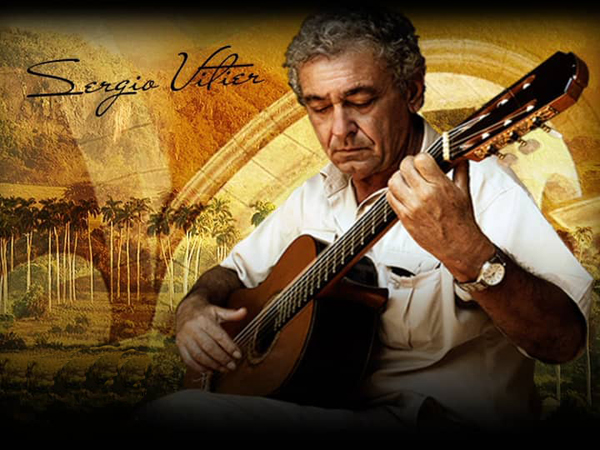In Memory of Sergio Vitier on His 75th Birth Anniversary

Today, January 18, we remember maestro Sergio Vitier on his 75th birth anniversary. A guitar player, composer, and orchestrator, whose versatility earned him the National Music Award in 2014.
An outstanding composer who, far from any elitism and attached to the root elements of Cuban music, once said: «If you want to be a real musician, you have to open your heart and soul to human experience and intuition; I mean to culture and sensitivity.»
There is nothing closer to describe the life of commitment and dedication of one who, with talent and an attachment for the autochthonous, overflowed an absolute mastery accompanied by the guitar.
His parents were the poet Fina García Marruz and essayist and poet Cintio Vitier. In his training period, he had renowned maestros, among whom were Elías Barreiro, Isaac Nicola, Federico Smith, José Ardévol, Leo Brouwer, and José Loyola and Roberto Valera at the Higher Institute of Art (ISA in Spanish).
He was part of different ensembles such as Los Armónicos, the Orquesta Cubana de Música Moderna, the Grupo de Experimentación Sonora del Icaic, and the Grupo Nuestro Tiempo.
But, when in 1968, he founded the ORU ensemble, Sergio had already experienced the experimental, the avant-garde, in a context in which his experiences were a masterful and creative summary of the academic tradition and the Afro-Cuban ritual and oral components.
Possessing an extraordinary capacity for innovation, Vitier created based on the knowledge of contemporary orchestration techniques while fusing Hispanic sound elements with others of African origin.
This mastery was present in his music, included in albums such as Cuerdas cubanas, Nuestra canción, Concierto habanero, and Cruce de caminos, pieces in which he gathered renowned musicians such as Ernán López-Nussa, Javier Zalba, and Pancho Amat. Most of his compositions are part of Radio Enciclopedia’s music library.
With more than 50 soundtracks for films, TV shows, theater, and ballet performances, Vitier’s mark distinguishes musical creation as an integral support for artistic material.
In cinema, just to mention a few titles, he composed the music for Girón (1972), De cierta manera (1974), El brigadista (1977), Guardafronteras (1980), Caravana (1990), Quiéreme y verás (1995), and Roble de Olor (2000). He participated in the soundtracks of TV series such as En silencio ha tenido que ser and Julito el pescador, along with his brother, composer José María Vitier.
Cuban institutions recognized his work. Proof of this was the awards received during his lifetime, as was the case of the 1997 Egrem Award for Homenajes, the 2000 Cubadisco Award for Travesía, and the 2001 Award for Nuestra canción.
Seven years have passed since his physical departure, leaving behind his legacy and stamp on music through the presence of his work and influence on the Cuban cultural heritage.
Translated by Luis E. Amador Dominguez



